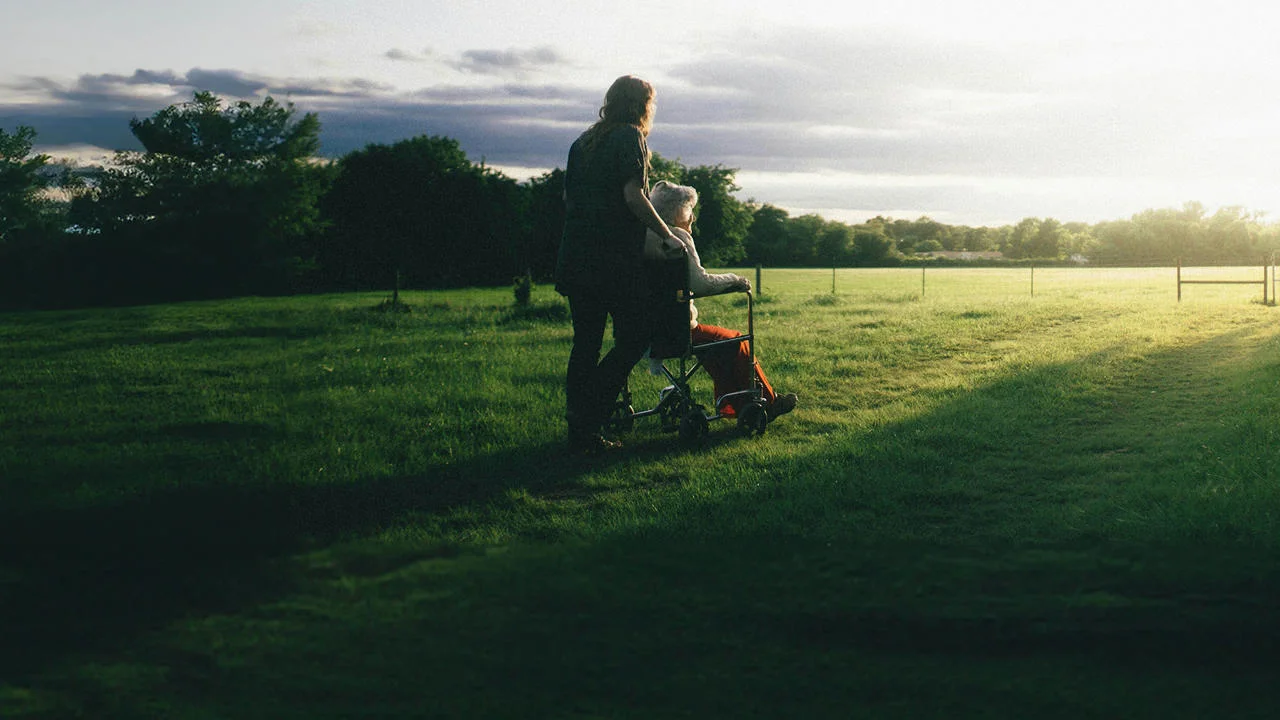Who should make the decisions that affect people with dementia?

Contents
The lifetime risk of either getting dementia or caring for someone with dementia in the UK – or experiencing both – is 55 per cent, a recent report has estimated. Given these statistics, "it’s more likely than not that your own life is going to be really heavily impacted by dementia", states Professor Anna Mahtani, Department of Philosophy, Logic and Scientific Method at LSE, in a recent Research Showcase talk.
What impact that might be, however, will vary, with data showing striking inequalities in the experience of dementia in the UK. Professor Mahtani points to one study which finds that dementia rates are over 20 per cent higher among Black adults compared to the UK average. Research has also suggested that dementia is higher in more deprived London boroughs compared to the capital’s less deprived boroughs. And there is a notable gender imbalance, with dementia killing almost twice the number of women as men – a glaring difference, even taking into account women’s longer life expectancy.
This overrepresentation extends to caring, Professor Mahtani continues: "Caring for people with dementia is this absolutely massive task that our society does. And it’s shared out across everybody, but it’s not shared equally." The majority of paid carers are women, with women also making up around two-thirds of unpaid carers. As Professor Mahtani observes, "there’s this enormous burden of care being taken on, largely by women in our society." It’s perhaps unsurprising that one of the female carers she spoke to for her research stated "this should be feminism’s biggest issue now".
Who should be making the decisions that affect a person with dementia, and how should those decisions be made?
Anyone who has cared for someone with dementia will know that there is a vast array of decisions to make. These might be everyday ones – about what to eat or what clothes to wear – or monumental ones – where someone should live, or how to pay for their care, and the medical treatment they should receive.
Professor Mahtani has worked on decision theory for many years, "but applying it to dementia is really something new. When I started looking at the connections, however, it seemed like such an important area to explore further." The central question for Professor Mahtani is: "who should be making the decisions that affect a person with dementia, and how should those decisions be made?"
When information is radically missing
Perhaps the most obvious answer is that the person with dementia should make the decisions that affect them. This is a perspective that Professor Mahtani agrees with in many cases – especially as some forms of dementia are diagnosed at an early stage, when people can live independently and make decisions about their own lives.
The challenge comes with more advanced dementia, where the person experiences a loss of information through forgetting, she explains: "When you’re missing information, that could stand in the way of making a good decision."
Of course, Professor Mahtani acknowledges, many of us make decisions every day without crucial information – perhaps we make a big purchase without doing much research first, for instance, and then regret it. The difference is that people with dementia are sometimes missing radically important information. For instance, if a person has forgotten that they are unable to walk, it might be difficult for them to make a decision about whether to use some of their money to purchase a wheelchair.
"It’s also possible to be missing so much information that you can’t make the decision at all. You haven’t even got the concepts that you need to understand the decision," states Professor Mahtani. She gives the example of asking someone with advanced dementia if they would like the booster vaccine for COVID-19 when the person doesn’t have a conception of what COVID-19 is: "It’s not just that they can’t make a good decision, they simply can’t make the decision." This is where the legal notion of lacking capacity comes in.
Because sometimes your desires seem to be altered, values that you had for your whole life seem to be different once you’ve developed dementia.
Respecting desires and values
Even if people with dementia are sometimes radically missing information, carers and family members typically want to ensure they respect their desires when making decisions. In many circumstances, Professor Mahtani believes there is the possibility of a more collaborative approach.
As she explains, think of visiting the doctor – your GP has the information to advise on medical treatment, but you can express your preference for a particular treatment path as the patient. We could consider a similar approach to dementia, she argues – combining the desires of the person with dementia with information possessed by a carer, family member or professional to reach something akin to a collaborative decision.
Professor Mahtani sees this as generally a good model. But questions remain, she stresses: "because sometimes your desires seem to be altered, values that you had for your whole life seem to be different once you’ve developed dementia".
An example could be someone who has been a vegetarian their entire life, but then starts to show a preference for meat dishes once they have dementia, she explains: "Should we go with the lifelong values that they had, or should we just go with the desires of the person with dementia at that time? Lots of people have the intuition that there’s something wrong with just going with the person’s current desires and leaving their old values behind."
Once you have dementia, the earlier self isn’t there anymore to make the decision.
For Professor Mahtani, this is where the decisions of your earlier self could play a role. But how? She acknowledges the challenge: "Once you have dementia, the earlier self isn’t there anymore to make the decision. So how can they make it?"
Support networks are crucial here. "I think one way that the person’s earlier self can make the decisions is, in a sense, by family members, friends and carers trying to choose what the person would have wanted before they had dementia," explains Professor Mahtani.
This can be legally underpinned by an advance directive indicating what you want to happen to you in the future, Professor Mahtani stresses. The advantage here is that your earlier self has access to information that the person with dementia may no longer possess. However, from another perspective, this earlier self is also lacking information – you don’t know your future situation and you don’t know what it is like to have dementia.
This is where education and greater understanding of dementia come in, argues Professor Mahtani. There are many misconceptions about dementia – "people might not know about the support that’s available, and they might not know what people generally seem to be experiencing when they have dementia". For advance directives to be most effective, "all of that information needs to be given to the person at the earlier stage in order to make a good decision".
For Professor Mahtani, when it comes to the question of who should make the decisions that affect a person with dementia, "I’m inclined to think at the moment it should be the person’s earlier self, but conditionalised on realistic scenarios." What this means in practice, she explains, is that "you know what’s likely to happen when you’ve got dementia. And then you can make a plan for that. And you’ve educated yourself about what having dementia involves so that you can make the right decisions."
Professor Mahtani sees support networks as retaining a key role in implementing the decisions of our earlier self: "I think friends, family and carers (who are realistically often the ones who are making the decisions, or helping to make the decisions) could be trying to act how the earlier self would have wanted, given what’s actually happening – i.e. conditionalizing on the realistic scenario."
A call for more advance directives
With so many experiencing or caring for someone with dementia in the UK, these questions about decision-making are something that many grapple with every day: "how much weight should be given to advance care plans, where an earlier self has said what they want, versus what the person now seems to want? And what values should the carers focus on? Should they focus on the person’s earlier values, or what they currently seem to value?"
These questions may not be easy to resolve. But while the UK currently has low levels of people making advance directives, Professor Mahtani sees a real opportunity if we recognise the likelihood that we will be affected by dementia and educate ourselves before writing down our wishes for the future. As she argues, "if you want your earlier self to make the decisions about what’s going to happen, I think there’s a call for making advance directives – legally binding documents – or at least statements of wishes".
This LSE Research Showcase was written up by Rosemary Deller, Knowledge Exchange Support Manager at LSE.
Download a PDF version of this article
2024 is a year of elections. What happens when the world goes to the polls?
- Read more articles from this global politics special edition of the LSE Research for the World online magazine.
- Explore our dedicated hub showcasing LSE research and social science commentary on key debates and emerging themes in global politics.
- Join us for the LSE Festival: Power and Politics, a week of events from 10 to 15 June 2024.




